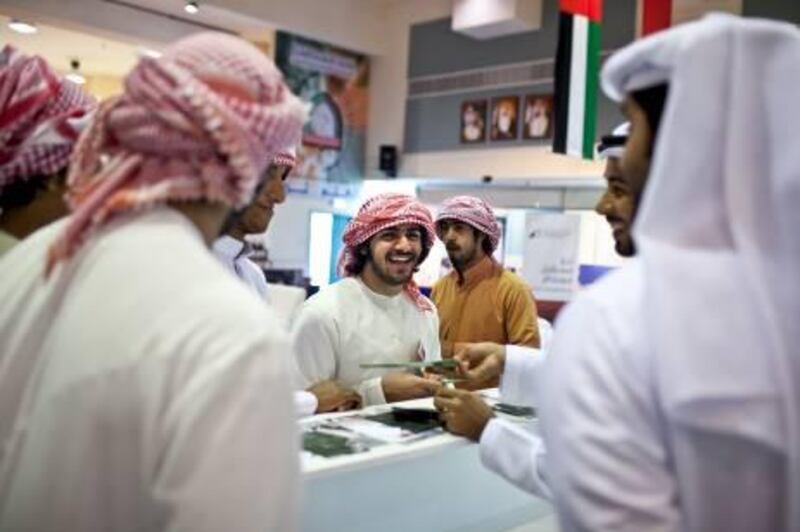ABU DHABI // Sheikh Mohammed bin Rashid has reaffirmed the Government's commitment to keep education and Emiratisation as top priorities.
The Vice President and Ruler of Dubai said the two were crucial to keeping the country internationally competitive, the state news agency Wam reported yesterday.
"All national initiatives should be integrated so as to deliver prosperity and a decent living for UAE citizens," Sheikh Mohammed said, adding education was a national responsibility that required the participation of everyone.
The commitment and investment in federal education has already begun to show results.
The UAE University has ranked 374th among the world's top 500 universities in the QS World University Rankings. Zayed University has been accredited by the US Middle States Commission on Higher Education.
The improvements are equally visible in schools. Examples include 100 more public schools receiving high-speed internet this September. And pupils will each be given a tablet computer as part of a five-year, Dh10.5 billion project to modernise learning.
Twenty-two per cent of the federal budget, or Dh9.9bn, was allocated to education this year.
The heavy investment was made on the orders of the President, Sheikh Khalifa, who said education would give the nation a competitive edge.
About Dh6bn of the Dh9.9bn budget will go to funding development projects and introducing advanced learning technologies in state schools.
Another Dh3.9bn has been set aside for the growth of higher education with an emphasis on promoting scientific research in universities, funding study abroad for Emiratis and upgrading buildings and equipment at government universities.
All of this reform is part of a decade-long drive that was first outlined in the 2020 Education Agenda, approved by the federal Cabinet and endorsed by Sheikh Mohammed, also the Prime Minister, in 2010.
The agenda outlines five themes for improvement in education: boosting pupil achievements, developing the school environment, protecting equal education rights for all pupils, introducing national identity programmes and raising administrative efficiency.
Before 2020, the agenda lays out goals to address quality differences between public and private schools, closing the skills gap and improving technology use in the classroom.
"Options, on the whole, for Emiratis have improved," said Ayesha Al Mutaiwi, a media coordinator at Zayed University.
In 1977 the first university in the country, UAE University, opened its doors. Today, there are more than 80 higher education institutions offering more than 780 academic and research programmes in a wide range of specialisations.
More than 110,000 students are enrolled in private and federal institutions, with the numbers continuing to rise as more international branch campuses are set up in the UAE.
The Higher Colleges of Technology, with its network of 17 campuses for men and women across the country, has had about 60,000 Emirati graduates in the past 25 years.
"The Government also does a lot to accommodate women rights," said Ms Al Mutaiwi, who said she felt privileged to study in a country where women are treated equally in education and work.
"I believe this shows great development in education."
Zayed University, which was established for women only, has diversified over the years by adding a male campus and taking in international students.
"Zayed University has also added new programmes and practical courses so that graduates have better opportunities and are competitive in the job market," said Ms Al Mutaiwi.
Universities are striving to attract prominent faculty, introduce the latest technology in teaching, increase scientific research and build partnerships with the corporate sector and top world universities.
The Ministry of Higher Education and Scientific Research has announced plans to further improvement by aligning all academic programmes to meet international requirements and community needs.
The authority has also set aside funds for research projects and collaborate with research centres to encourage innovation and invention among Emirati students.






